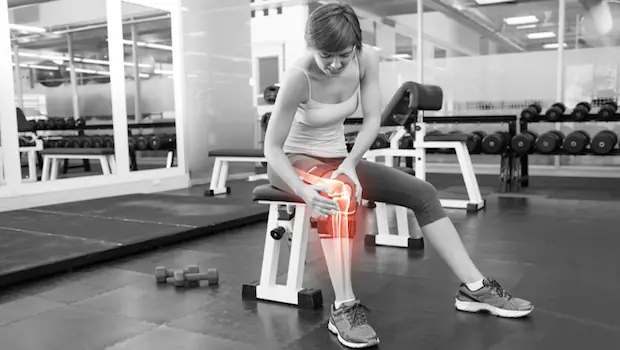
"Pain is weakness leaving the body."
This statement and similar motivational(ish) quotes are go-to stock phrases of drill sergeants, tough guys, and, unfortunately, coaches and workout buddies everywhere.
We get it: When it comes to working out, pushing ourselves is a tried and true way to make progress toward fitness goals. But what about when we push too hard in the face of pain, putting ourselves in danger of injury? Hello, rehab!
It's about this time when the physical therapist asks us things like, "Did you feel this coming on?" "When did the problem start?" Their parting advice is often, you guessed it: "Next time, listen to your body."
It's all just a jumble of mixed messages. First, do we ignore the pain or push past it? And second, what the heck does "listen to your body" mean anyway? If we actually listened to our bodies, would we ever willingly participate in activities that make us tired, sweaty, and sore in the first place? OK let's not get carried away.
One thing we know for sure: Exercise is good. Well, the right amount of exercise at the right intensity is good. The challenge is figuring out when enough is enough and when it's just too much. The good news is that our bodies already know the answer. We just need to train our brains to recognize the signs for when to put the pedal to the metal and when to pump the brakes—and actually do it.
More From Greatist: The Minimum Amount You Can Strength Train and Still See Results
Seeing the Sign
It's understandable to think that exercise- or sports-related injuries are just plain bad luck. But freak accidents notwithstanding, there's a good chance that before that ACL tore or that hammie popped, your body tried to warn you that injury was a-comin' for you.
It might come as a surprise, but our bodies are incredibly smart. If we take the time to listen to them, "some very serious injuries or conditions could often be avoided," says Dr. Doug Andrews, PT, director of sports medicine for Optim Healthcare. "When we experience pain, our body is definitely telling us that something is not right. It is up to each person to figure out what the signal means," Dr. Andrews says.



